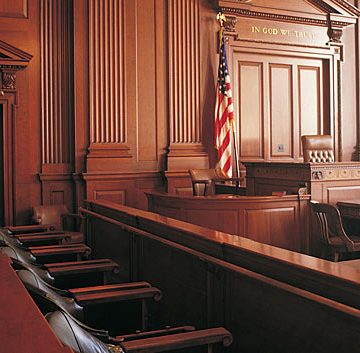
After declaring the act illegal for 26 years, the U. S. Supreme Court has overturned the law that prohibited sports betting in every state except Nevada. The ruling opens sports betting for any state that desires to offer it to its citizens.
In making their ruling, the SCOTUS didn’t state that Congress couldn’t regulate sports gambling but that, if it chose not to, it would then be up to the individual states to make the decision for themselves. In their opinion, the Justices wrote that “our job is to interpret the law Congress has enacted and decide whether it is consistent with the Constitution. PASPA is not.”
With this decision, a whole new world has opened for the individual states. Like Nevada, now every state can make the decision as to whether they want to offer individual game betting on an array of sports and, at the same time, whether they want to allow for online wagering on those same games. There are estimates that as many as 32 states will pass some sort of sports betting within the next five years with this new decision.
Since it brought the case in front of the courts, it is expected that New Jersey will be the first to jump on the actions of the Supreme Court. There are other states that have watched this case closely, including Connecticut, Illinois, Indiana, Kansas, Missouri, New York and West Virginia, who have been entertaining the idea of passing sports betting legislation (both online and live) inside their borders. States with an expansive gaming culture, including Florida, Mississippi, Massachusetts, Louisiana, California, Oregon and Washington state (despite their online poker laws, Washington has a vibrant casino culture) could also be ready to move into sports betting after PASPA’s overturn.
The case itself has been nearly three decades in the making.
The Professional and Amateur Sports Protection Act (PASPA) of 1992 was the law in question. When it was passed, there was an option given to New Jersey to have sports betting in its casinos in Atlantic City. When that option was presented to the voters of New Jersey, they voted against offering sports betting and PASPA didn’t grandfather in the state along with Nevada.
Fast forward the clock to 2012 and Jerseyites had changed their minds. Another referendum was passed by the people but, because PASPA was now in place and prohibited sports betting from occurring in the state, they could not offer sports betting unless there was a change in the law. Rather than wait until the federal government got around to passing laws regulating sports betting on a national level (and, with PASPA in place, there was little to no action on doing such), New Jersey decided to challenge the law in court.
The case that challenged the law, New Jersey v. NCAA, et. al., contended that gambling had been the traditional domain of the individual states and that the law was unconstitutional in that it prohibited the states from making their own decisions on the issue. Sports organizations like the National Collegiate Athletics Association (NCAA), National Football League (NFL), National Basketball Association (NBA), National Hockey League (NHL) and Major League Baseball (MLB) initially fought New Jersey when they first presented the case six years ago, stating that the law was important to protecting the integrity of their events (the NBA and MLB have changed their stance in the past couple of years on sports betting). In every court, PASPA was upheld, but New Jersey’s Attorneys General (there have been five – Jeffrey Chiesa, John Jay Hoffman, Robert Lougy, Christopher Porrino and Gurbir Grewal) persisted in challenging the case. In December 2017, the U. S. Supreme Court heard arguments on the case, with the implications of the decision significant.
There were three courses that the SCOTUS could have gone. First was to follow the lower courts rulings and determine that PASPA was constitutional, ending the case. Second was to find for New Jersey ONLY and force every state to prove PASPA was unconstitutional. Finally, the SCOTUS could make the ruling that they eventually did – that PASPA was unconstitutional and to open the right of the states to determine their own fates with sports betting.
The new ruling in favor of sports betting could also have an impact regarding online gaming and poker regulation. In some states, the different activities have been linked together in that if sports betting were legalized, then online casino gaming and poker would come along with it in a full gaming package. New Jersey would be the first example of that, with online sports betting becoming another piece of their gaming offerings…those online casino and poker offerings that topped $245 million in 2017.
The new ruling opens sports betting for the nation, an industry that could prove lucrative. In 2017, Nevada sports books took in $4.8 billion in wagers. Now it must share those revenues with what could be tens of states that will be in competition with them very soon.















